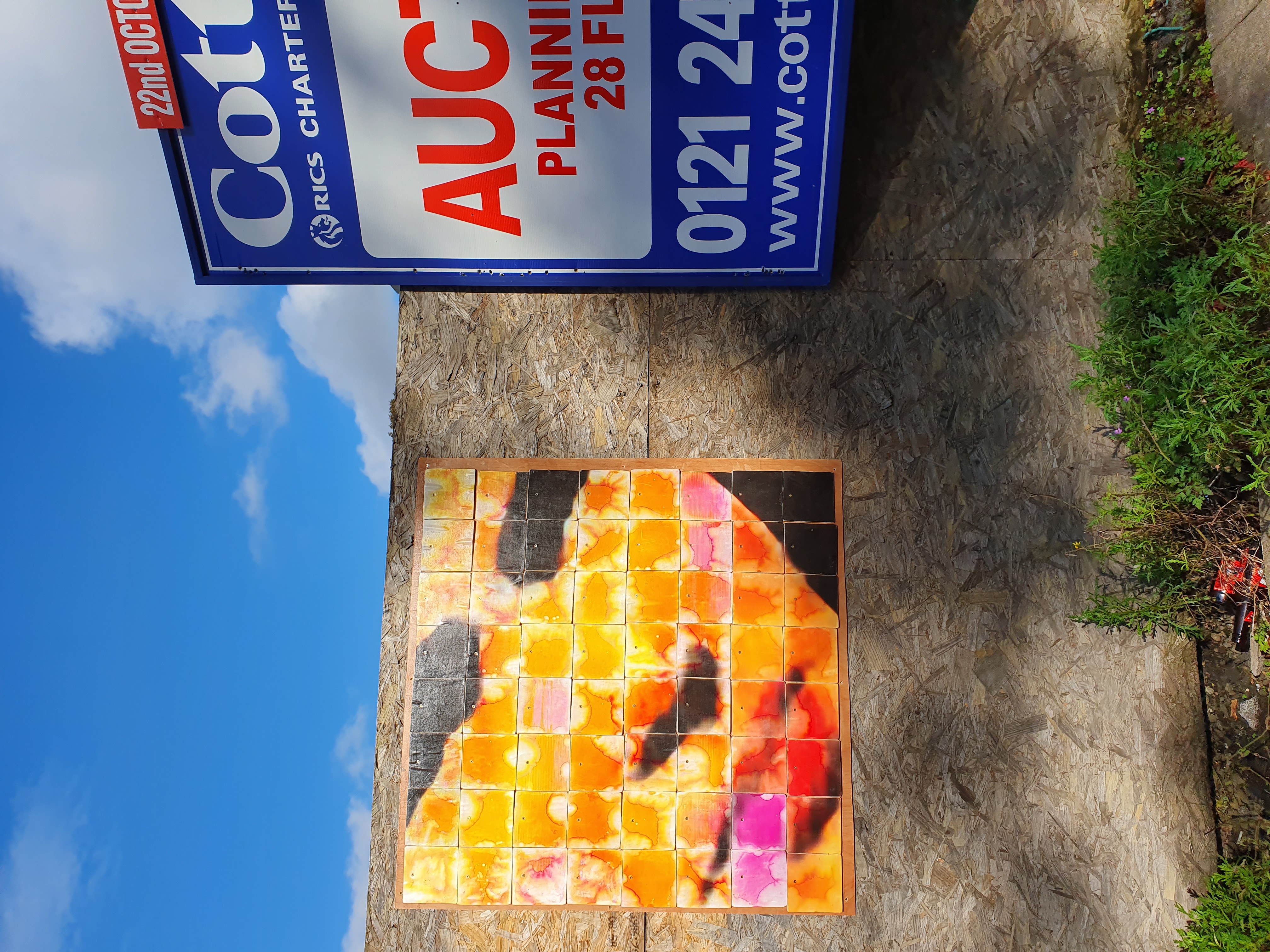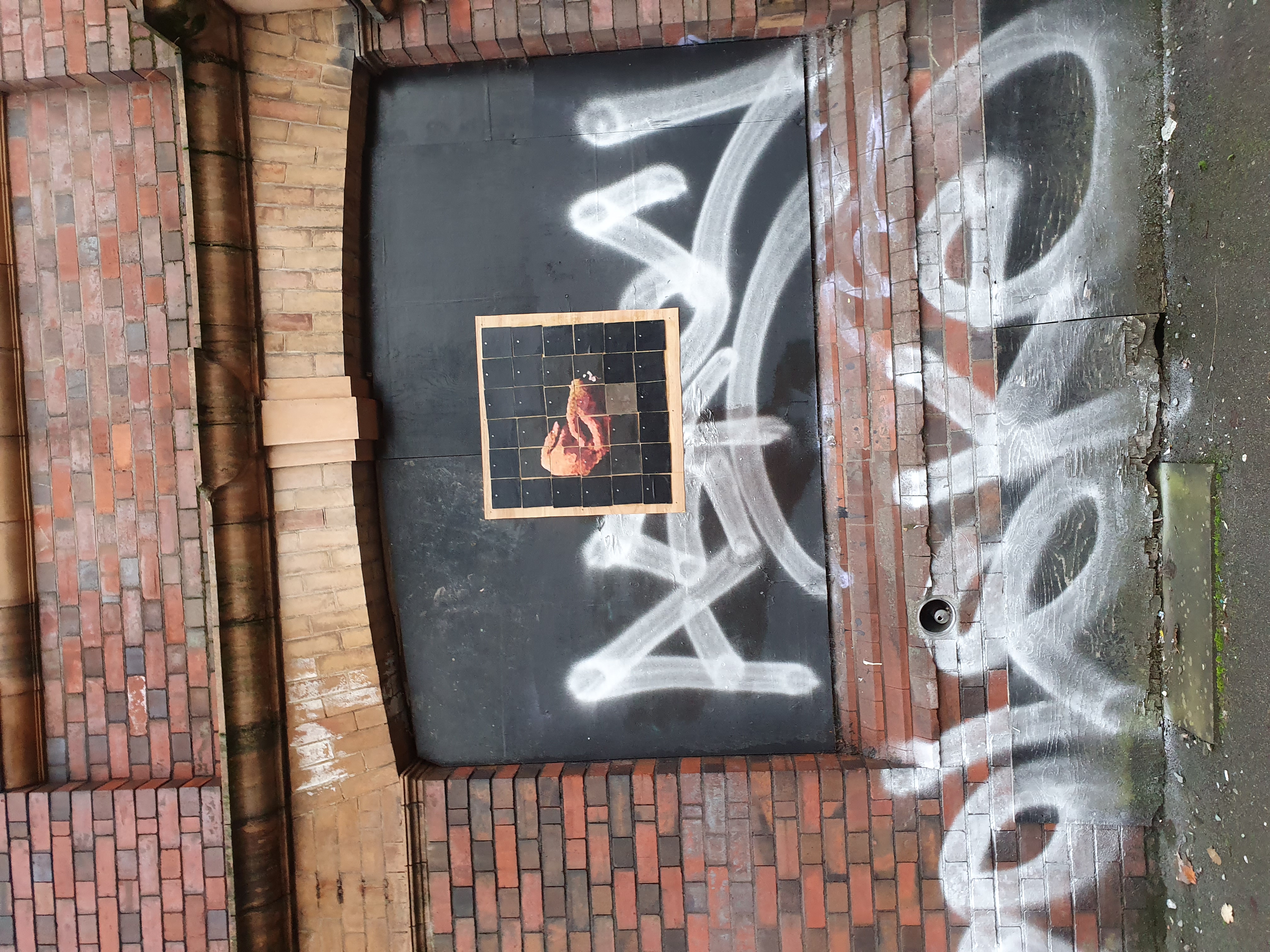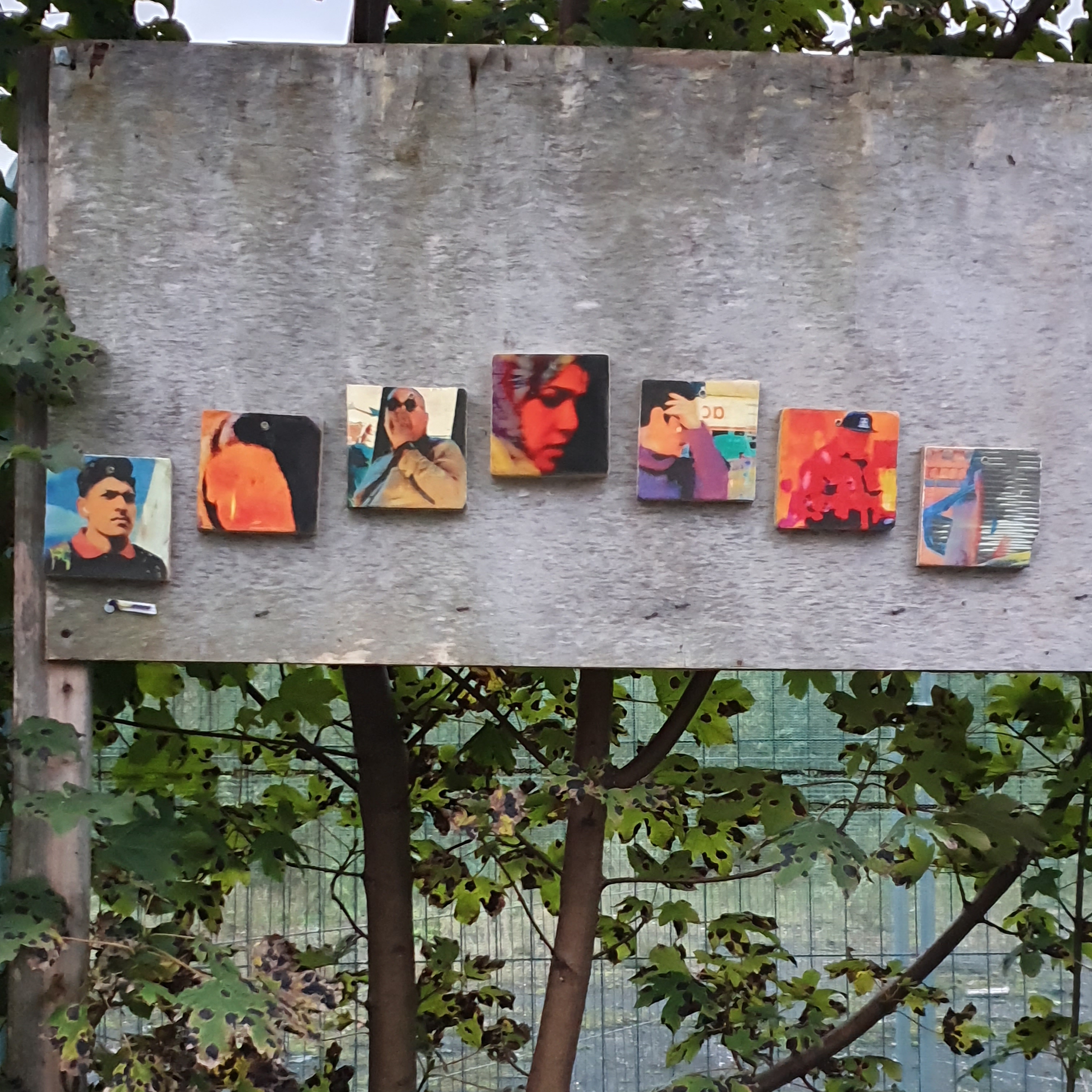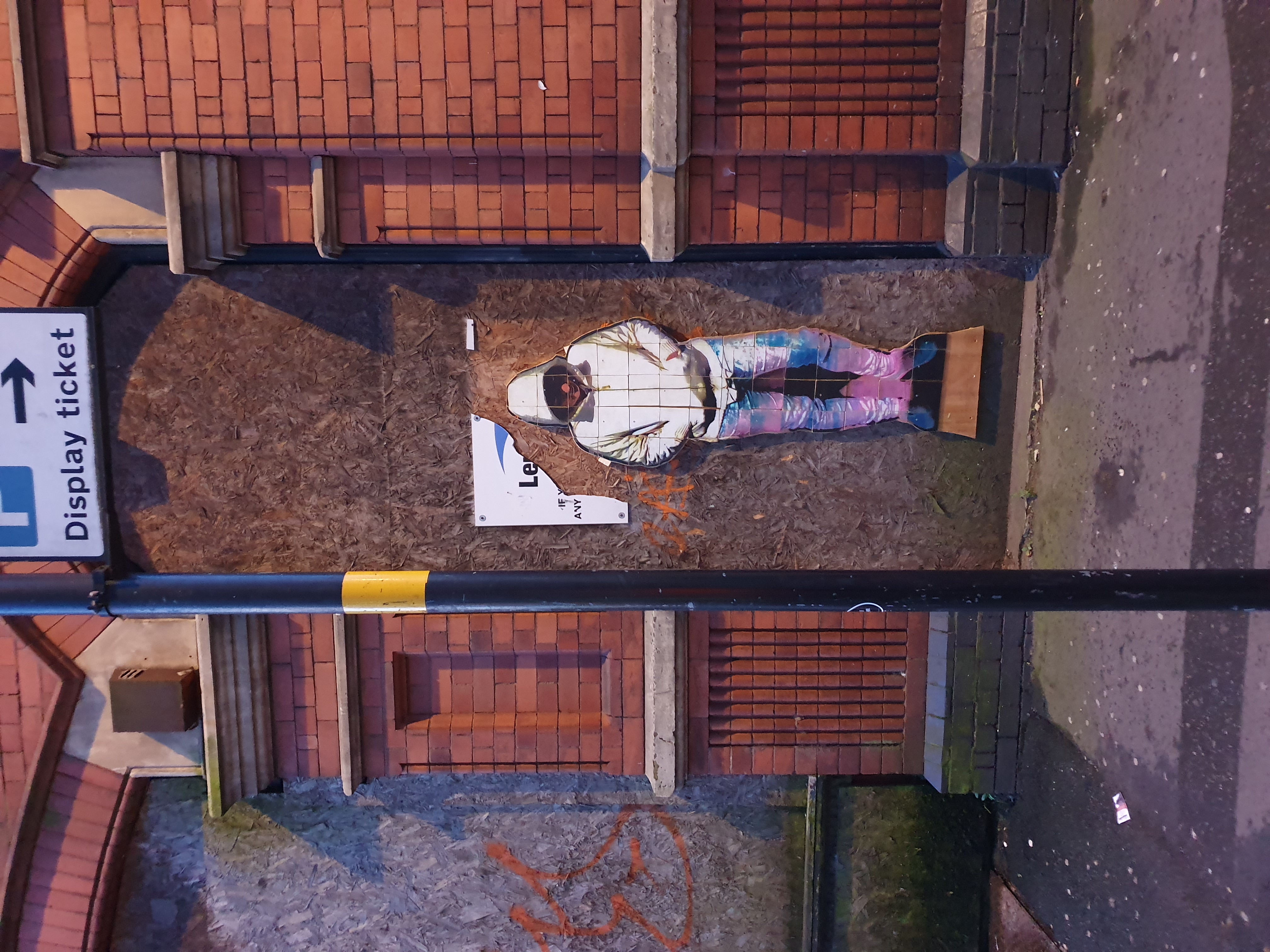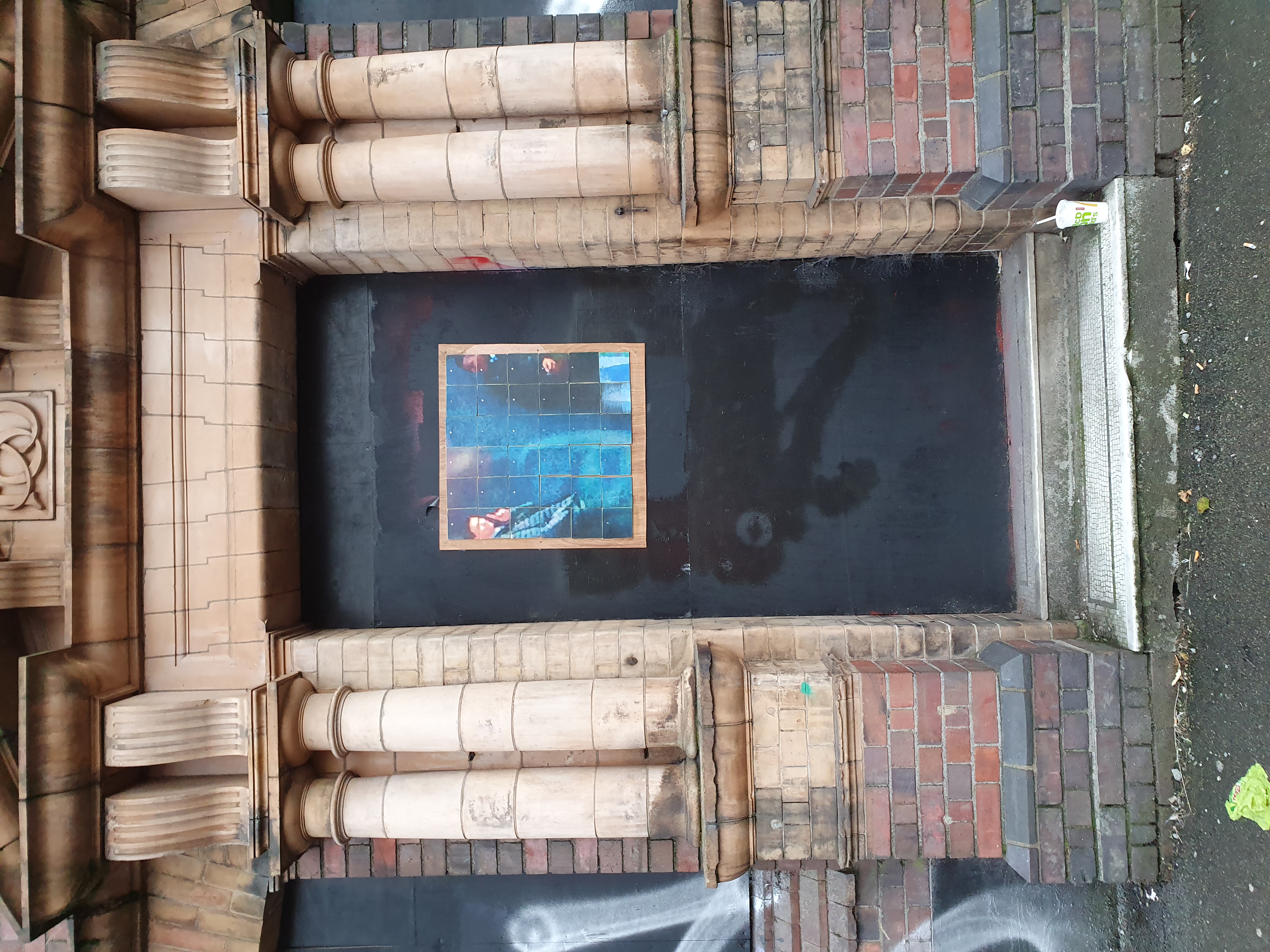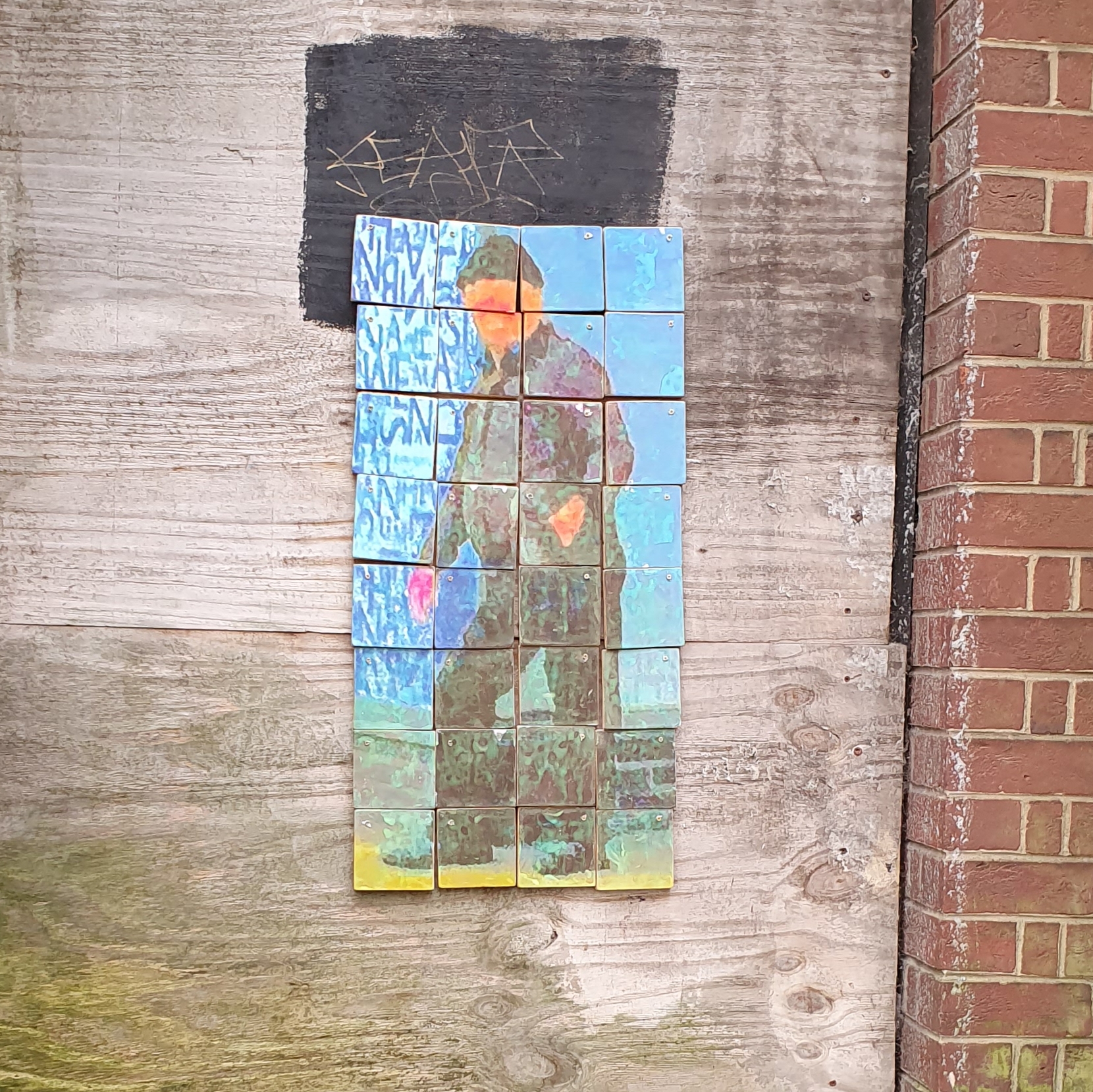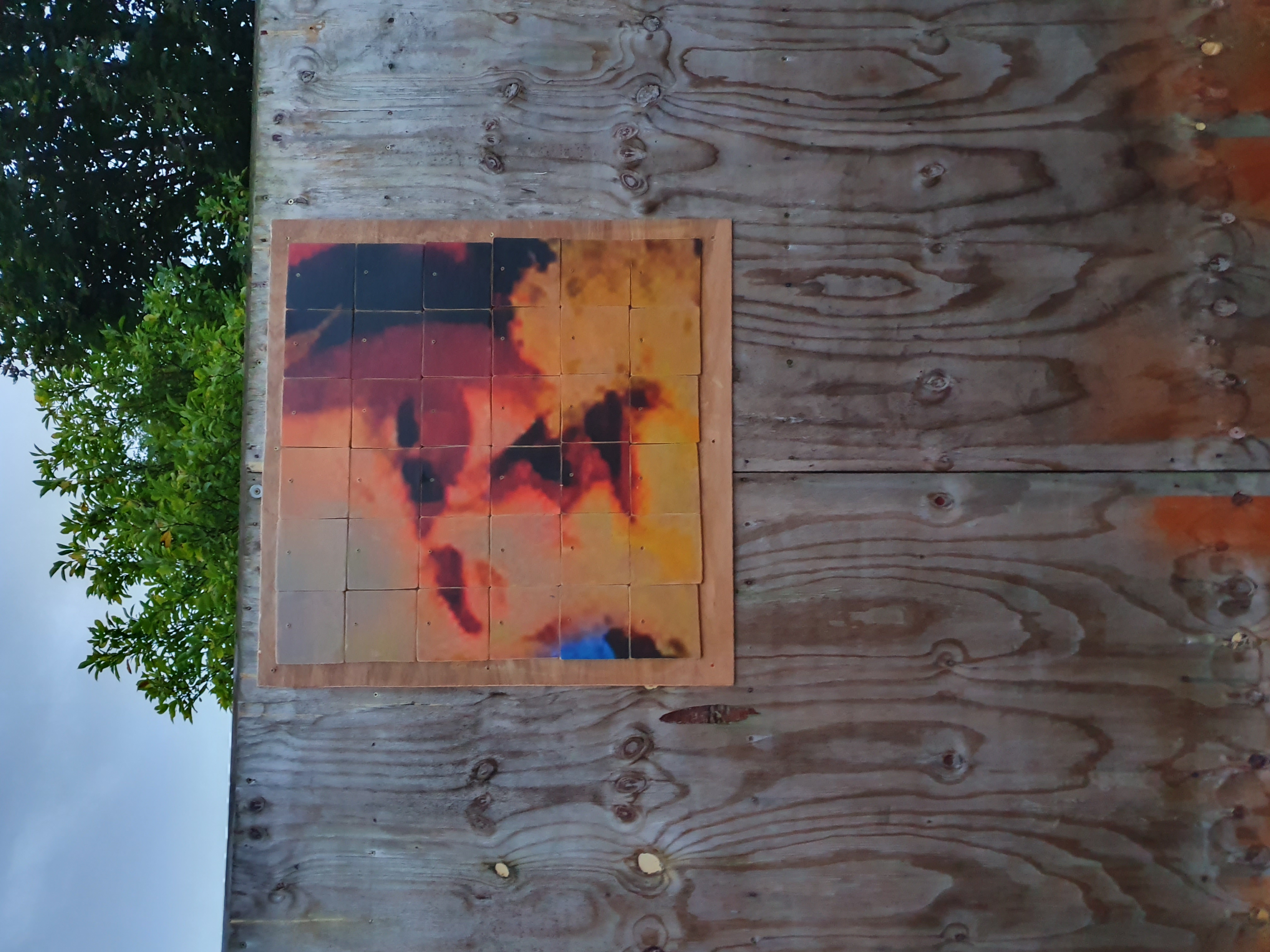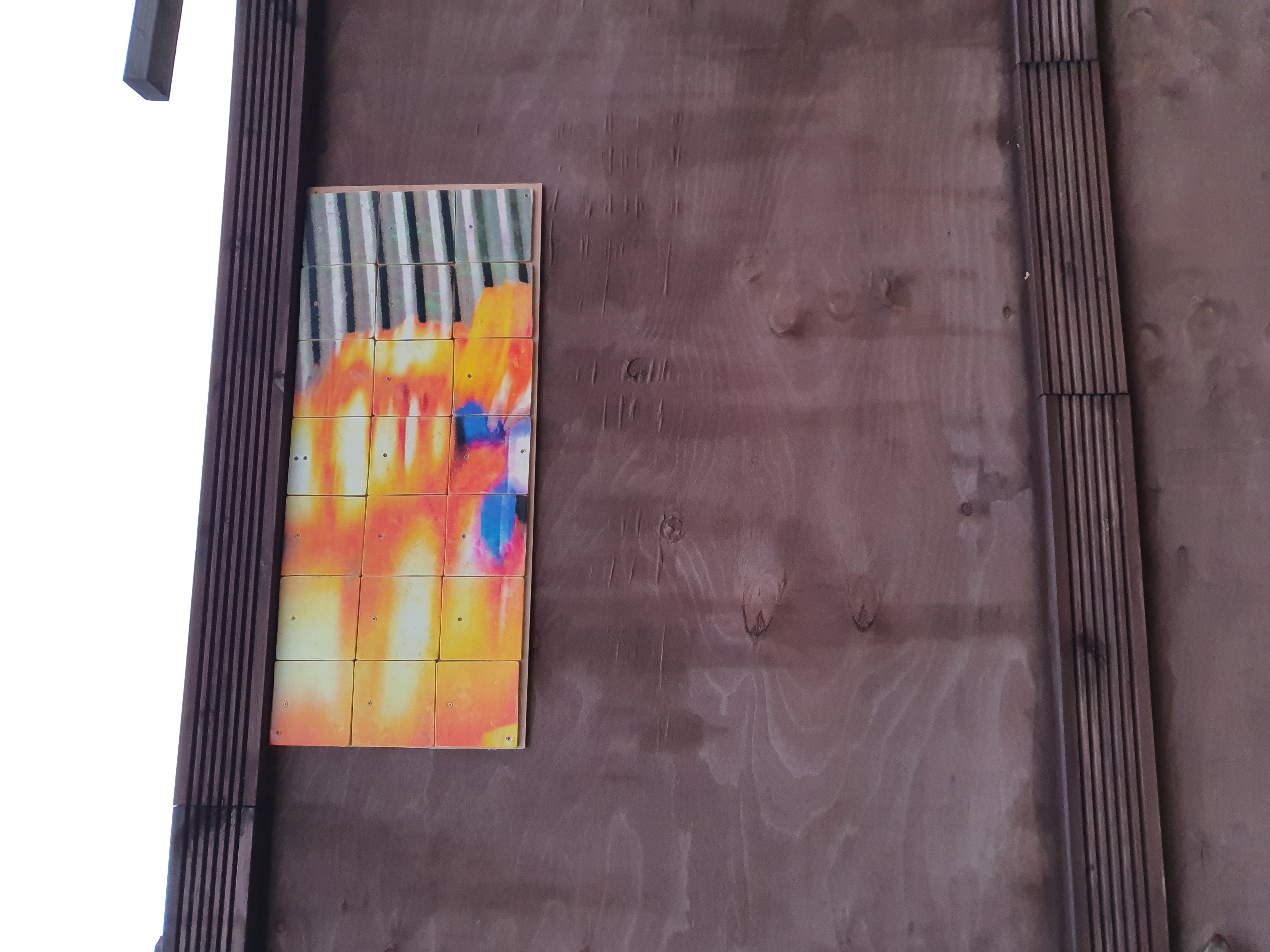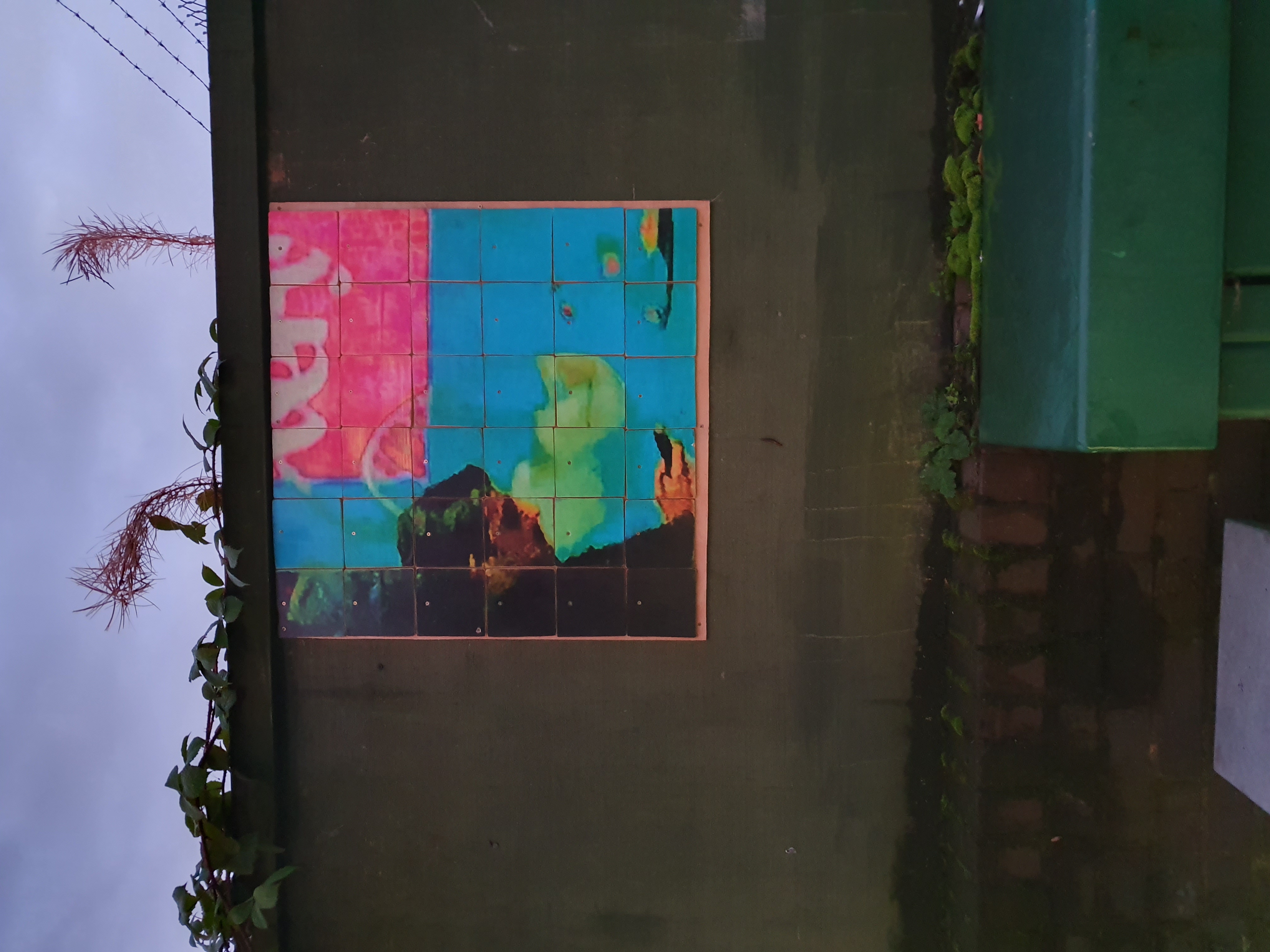Timothy London
In 2016 I planned to travel a stressed and divided UK in a Mondeo car on a tour I was calling Lovebomb The Nation.
My aim was to visit lesser-visited parts of the country, find a pub or social club and set up a small PA and perform a couple of hours of electronic music, sometimes followed by a DJ set. Just as DJs used to across the UK, in the 60s/70s/80s, bringing record decks, their own, compact sound system with them and a few flashing, coloured lights.
Why?
Probably some romantic idea that music heals, that there’s a good heart in every place, that music and art should be democratically proactive. Quite simple, really. A sort of digital age version of a travelling folk club.
Growing up in Harlow New Town I was surrounded by green spaces, planned into reality by the original town designers and architects, who also placed a series of, sometimes quite abstract, statues and mosaics by contemporary and older sculptors in small shopping centres or at unlikely places amongst the houses and flats.
Did these improve our lives? Did we notice them any more than the walls and garages and phone boxes? No, but the thought, the compassionate sharing by the middle and upper classes who drew up the town plans might have seeped into our understanding of what kind of place Harlow was and perhaps is meant to be.
That patronising vision, that has driven government’s attitude to culture and the arts in modern times is what I decided I was suffering from. This thought that my electronic music would be more interesting than the pop or karaoke or, in the case of Wetherspoons pubs, the sound of chat that was the soundtrack for an evening out drinking and socialising. It was arrogant.
Theatre, for me, is tricky. I suffer from Missing Fourth Wall Syndrome. Seldom or ever transported by performance and stage set to a different world. Plays and musicals, for me, take place in theatres and remain there. The spectacle includes the architecture of the hall, the audience, the technical aspects.
Having written a couple of plays that acknowledge this problem in my art psyche I know that it’s not the fault of the playwrights and productions. It’s just me. And this syndrome affects me in other circumstances. I watch films and can picture the production staff, anticipate narratives based on changes by film exec’s. We all do the latter to a certain extent - in most horror or war films we can confidently predict which character is going to be dispatched first. But this sophistication when it comes to movies and telly can help most people to lose themselves in the story, rooting for the heroes. For me it’s a distraction and I am seldom in the world they are trying to present.
Street photography has an element of theatre about it. Capturing someone or something in a way that casts drama into the shot. Mundanity made profound. Some photographers insist that this is the point, that real life is profound and that they want to present ordinary people doing ordinary things as special. As special as Roman emperors or Greek gods. Classically special.
“I hate pictures that make people look like they’re not worth much, just to prove a photographer’s point.” Said Jill Freedman, for instance.
I question that motivation. If it’s true then the photos should reflect just how every-day and ordinary their subject matter is. If there is something glorious or special about anyone at any time doing anything then it really shouldn’t matter if you - in fact, it’s important not to - show them in a false, dramatic frame. Inserting the photographer’s skills, knowledge of light and angle and lens into the situation transforms it. The story becomes about the photographer, not the subject.
So, after moving to Birmingham in 2018, I began to experiment with this pure representation, this celebration of the absolute ordinary.
Taking hundreds of iPhone photos, surreptitiously, in shopping areas, one thing immediately became apparent. That any camera that has a human directly attached will never rival CCTV for capturing other humans minding their own business. The difference, of course, is the angle.
Secretly photographing people whilst pretending to make a call means that the lens is a particular height, my ear height. I was still, despite my best intentions, inserting myself into the process.
I tried to be as invisible as possible but I was spotted a few times, particularly by dealers and users. A couple of times I was accused of being ‘5-O’ - the police. It would have been pointless explaining that I was much more interested in just ‘getting’ my subjects doing whatever mundane things they always do. But an addict’s life is also about added drama. There is an element of performance to the process of scoring and that didn’t really interest me.
Once I had a selection of pictures I wanted to reinsert them back into the environment from which they had come. Settling on creating mosaics from small, wooden tiles as being closer to the three dimensional reality. If I was a sculptor with plenty of money it would have been fun to make life-size statues but the mosaics were a compromise.
Over-saturating the colours, to celebrate the false nature of photography was my one, acceptable ‘intervention’. I wanted to tell viewers that I existed in the process.
But mainly I hoped that my mosaics would show ordinary people themselves, being themselves, and that they were as worthy of being noticed or ignored, doing whatever their lives demanded as any general, politician or celebrity.
Installing the mosaics where I could screw them in place meant I had to find wooden boards. Plenty of these in Birmingham. In central Birmingham where there are still many buildings and sites surrounded by often dilapidated boards the mosaics sometimes were removed in a matter of days. Elsewhere they stayed up until the weather gradually destroyed them.
Who noticed? Hardly anyone, I think, which was a kind of success. Apart from the caretakers who’s job it was to remove fly-posters and cover graffiti. They were ruthless. Perhaps because the sudden appearance of a mosaic emphasised the empty building hidden behind the boards.
They’ve all gone now. And it’s quite appropriate that their existence slipped by, just like people we see in cities and towns every Saturday afternoon slip by, unless we know them personally, or unless something genuinely dramatic makes us notice them. In which case, to me, that’s the real theatre. The real drama. It happens, then it’s over and you don’t need a ticket and the only record is your memory.
Music made by the author whilst in the same state of mind:
